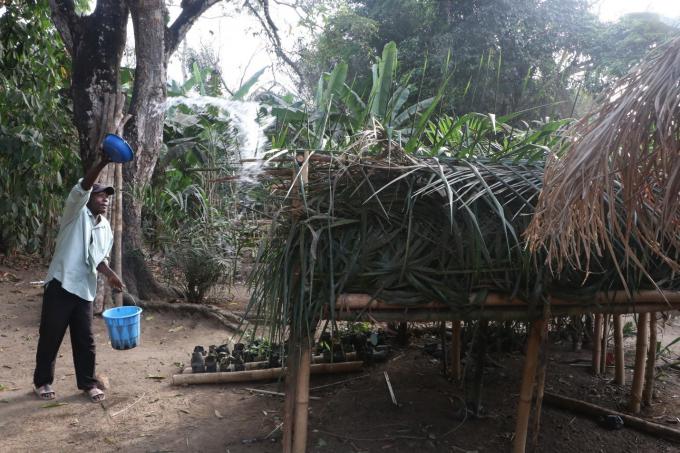"Leaving old farming practices is hard but new ideas have paid off”
|
Ansu is one of 35 lead farmers in the Sierra Leone Agricultural Initiative an eighteen (18) months Food Security and Livelihood intervention funded by Sierra Rutile Limited-International Finance Cooperation (SRL-IFC) Advisory. He is a peer facilitator trained to share knowledge and provide practical guidance to other farmers in the district on better agricultural practices. “To be honest, I was just attending the sessions and going through the modules but I never thought that the ideas we talked about would be better than what we already know,” he said. “From the beginning I believed that we (our community) had the best nurseries and agricultural systems in the country. After some time, I started to realize that what expert were telling us was totally different to what we know. Although some of the ideas seemed strange at the time, I decided to put these ideas to test. “I set up a nursery for my pepper and some other crops using the exact methods we were trained on. It yielded great results. Since then, I have been applying these ideas to some of my other plantations. To be honest, leaving old farming practices is hard but the new ideas have paid off. I have seen really good results in my farming and feel proud of what I have achieved so far. “I feel what I have learned will help a lot of farmers and the community as a whole. I am yet to apply the knowledge to all my plantations but it is only a matter of time before I do that." The Sierra Leone Agricultural Initiative project is targeting six (6) communities: Saahun, Matagelema, Lungi, Junctiolla, Gangama and Higgima. Save the Children in collaboration with Sierra Rutile Limited and International Finance Cooperation is building the capacity of at least 35 lead farmers who in turn are training 150 household farmers. The project is targeting a total of 1,110 beneficiaries, (579 women and 531men). Up to 70 percent are expected to be under the age of 30. |
 Sierra Leone
Sierra Leone  Ansu watering his nursery to test new methods of farming at Higima Village, Rutile. February 2022. Photo Credit: Abdul Sillah – Save the Children
Ansu watering his nursery to test new methods of farming at Higima Village, Rutile. February 2022. Photo Credit: Abdul Sillah – Save the Children